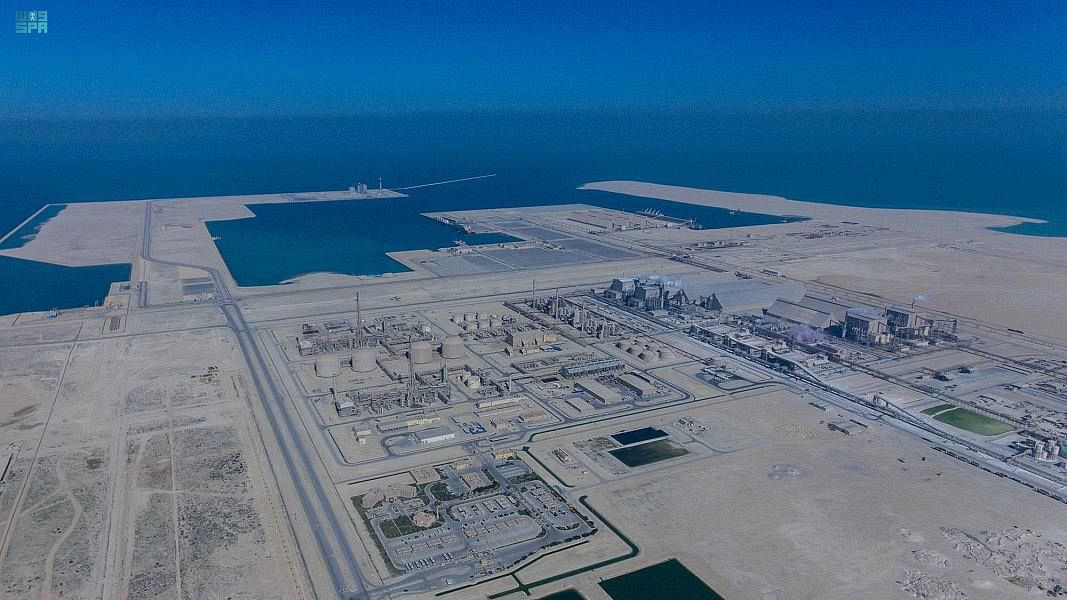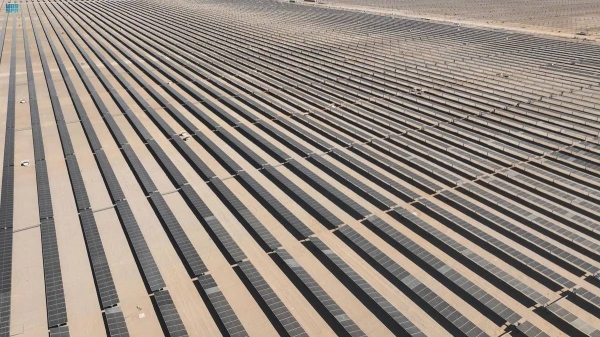
The Saudi Arabian Mining Company (Maaden) has completed utilities commissioning on a $900 million ammonia plant in Ras al-Khair industrial City.
Construction completion is expected in the fourth quarter of 2021.
The ammonia plant is the first project in the $6.4 billion “Phosphate 3” expansion to Maaden’s phosphate fertilizer portfolio. It encompasses the full mine-to-market development process of phosphate fertilizers.
Maaden CEO Abdulaziz al-Harbi said described the project as a “tremendous milestone” for the company’s phosphate portfolio.
“The ammonia plant expansion will add over one million tons ammonia production to reach 3.3 million tons, making Maaden one of the largest ammonia producers east of the Suez Canal.”
The Phosphate 3 expansion will add three million tons of phosphate fertilizer production capacity to Maaden’s portfolio, bringing that to a total production capacity of more than 9 million tons.
The plan will put Maaden among one of the top three global phosphate fertilizer producers and Saudi Arabia the second largest phosphate fertilizer exporter worldwide.
Harbi asserted that Maaden has been moving ahead with the construction during the COVID-19 pandemic and thanks to the dedication of its team and partners, construction has been completed for the utility section and pre-commissioning activities started.
“Safety has remained a priority for us throughout the project and I am pleased to say that over 4,000 employees invested 14 million+ safe man-hours to deliver the construction on the Ammonia 3 project over 32 months,” Harbi added.
Maaden began commercial production of fertilizers in 2011 and has since become one of the top three largest producers of phosphate fertilizers globally, catering to the biggest fertilizer markets and meeting the food requirements of hundreds of millions of people.
It is committed to empowering farmers by providing high-quality products that improve crop quality and yield and supporting Saudi Arabia’s contribution to achieving global food security in line with the UN’s Sustainable Development Goals (SDG).
Maaden’s mine-to-market phosphate business consists of three mega projects: Waad al-Shamal which is the center of the Saudi phosphate industry; Ras al-Khair, a phosphate and bauxite processing superhub; and Phosphate 3.
In 2019, Maaden expanded its phosphate business in sub-Saharan Africa through the acquisition of fertilizer distribution company Meridian Group, enabling faster and better service for local customers in Africa.
In line with Maaden’s sustainability commitment, phosphate operations at Ras al-Khair Industrial City draw all its process water from one of the world’s largest desalination plants and utilize a natural engineered wastewater treatment (NEWT) system.
Between 60 to 80 percent of the treated water gets reused as process water and the rest for local landscape irrigation.
Separately, GE Renewable Energy’s Grid Solutions has won a deal from Doosan Heavy Industries and Construction to build a turnkey substation that will power the Yanbu-4 independent water producer (IWP) plant.
This is the first integrated, seawater reverse osmosis project in the Kingdom that uses clean energy and will be operational in 2023.
Yanbu-4 will have a capacity of 450,000 cubic meters per day of fresh water to be supplied to households in Makkah and Madinah.
CEO of GE’s Grid Solutions for the Middle East, North Africa, and Turkey Bernard Dagher noted that Yanbu-4 project is a major milestone in the development of the Kingdom’s water infrastructure.
“As a renewable energy-driven project, it meets the vision of the Saudi leadership to promote environmental sustainability, while meeting the growing demand for freshwater supply in the cities of Makkah and Madinah.”
Dagher indicated that the new project confirms the company’s ability to be a trusted partner in the infrastructure growth of the Kingdom, including in the delivery of turnkey substations for desalination plants
Desalination has proven a viable alternative to meet Saudi Arabia’s potable water requirements
A report by the UN University states that Saudi Arabia is the world’s largest desalination market, accounting for 22 percent of global production.
Reverse osmosis is the primary desalination process whereby water is pushed under high pressure through fine membranes to produce potable water.
The process of desalination is power-intensive, and GE’s Grid Solutions supports plants through its technology solutions.








